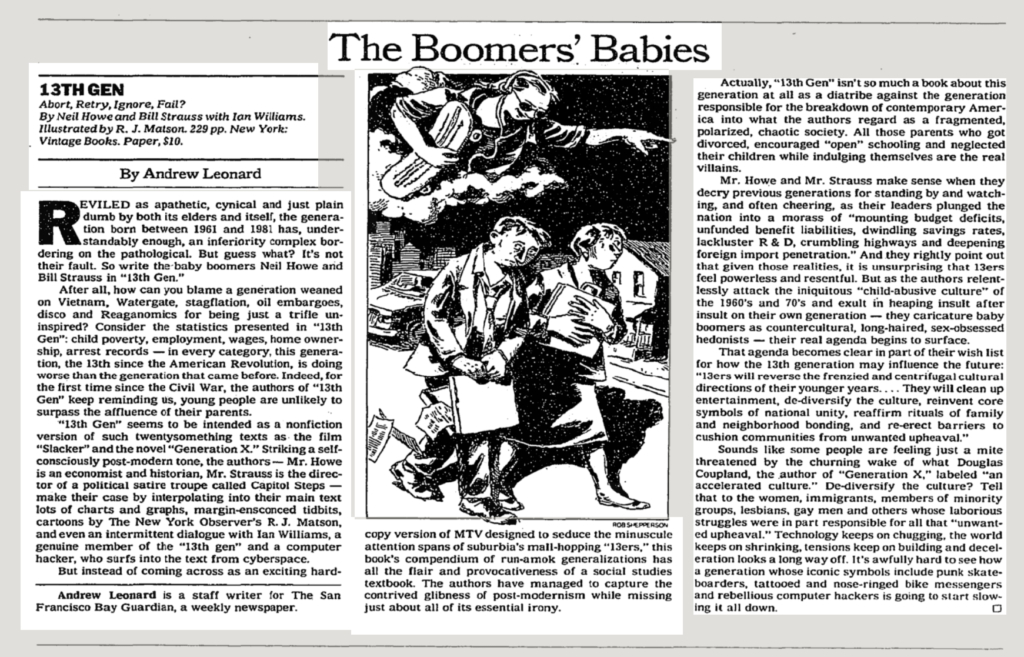Only half of U.S. Gen Xers have a retirement account, and that’s a disaster in the making

By Tanza Loudenback
22 October 2019
(Business Insider) – Millennials may bear the brunt of bad press, but Gen X is arguably in worse financial shape.
Insider recently teamed up with Morning Consult to survey 2,096 Americans about their financial health, debt, and earnings for its new series, “The State of Our Money.” Of the total respondents, 566 were Gen X, defined as ages 39 to 54 this year.
According to the survey, exactly half of Gen Xers don’t have a retirement savings account. That’s only slightly less than the share of millennial respondents who don’t have one (54%). That’s particularly concerning considering the three-decade span between the youngest millennials and oldest Gen Xers.
While the Silent Generation and early Baby Boomers have relied on a combination of pension benefits and Social Security to make up their retirement income, Gen X has largely had to assume the responsibility of building up their own nest egg, and they’re clearly struggling.
All told, only 36% of Gen Xers are actively saving in a retirement account, while 13% have a dormant retirement account. Americans tend to earn the most money from their late 30s to early 60s, making it a crucial period for socking away extra income.
And yet, “I don’t earn enough money to save for retirement” was cited as a major reason for not saving by about 62% of those who don’t have a retirement plan. Regardless of salary, the financial squeeze for many Americans tends to ramp up during mid-life. They’re typically the most expensive years, when buying a house, supporting children, and accumulating debt become the norm. [more]
Only half of Gen Xers have a retirement account, and that’s a catastrophe in the making

Gen X faces a bleak, impoverished old age
By Ted Rall
24 October 2019
(Counterpunch) – In 1991 the demographers Neil Howe and William Strauss published their awkwardly-titled tome 13th Gen, about Generation X—the Americans born between 1961 and 1981. If Xers had paid attention they would have committed suicide.
“Child poverty, employment, wages, home ownership, arrest records — in every category, this generation, the 13th since the American Revolution, is doing worse than the generation that came before,” New York Times book critic Andrew Leonard wrote at the time. “Indeed, for the first time since the Civil War, the authors of ‘13th Gen’ keep reminding us, young people are unlikely to surpass the affluence of their parents.”
Tellingly, the Times titled Leonard’s review “The Boomers’ Babies” as though their relationship to The Only Generation That Mattered at the time was their status as offspring. Which, equally tellingly, was incorrect. Most Xers’ parents belong to the Silent Generation that came of age in the 1940s and 1950s, not the Boom.
As Gen Xers passed through each stage of life, Mssrs. Howe and Strauss predicted, they would find themselves living through the worst possible time to be whatever age they happened to be. They attended secondary schools turned threadbare by budget cuts. As they entered young adulthood the government restored draft registration and abolished financial aid grants for college. When 13th Gen came out the oldest Xers were in their late 20s, in the middle of a deep recession that decimated their job prospects and made it impossible for them to pay off their student loans or save for retirement.
The trend continued. The oldest Xers are in their late 50s but 47% have nothing saved for retirement; only 13% have more than $100,000.
Though frequently mocked by corporate journalists, Howe and Strauss have proven prescient, not least because they coined the word “Millennials.” If anything, demographic fate has become even unkinder to Gen X, now ages 36 to 56. Under “normal” circumstances, these Americans would be dominating businesses and cultural institutions.
Instead, political power and cultural influence have neatly leapfrogged from the ubiquitous Baby Boomers to their actual children, the Millennials. [more]


